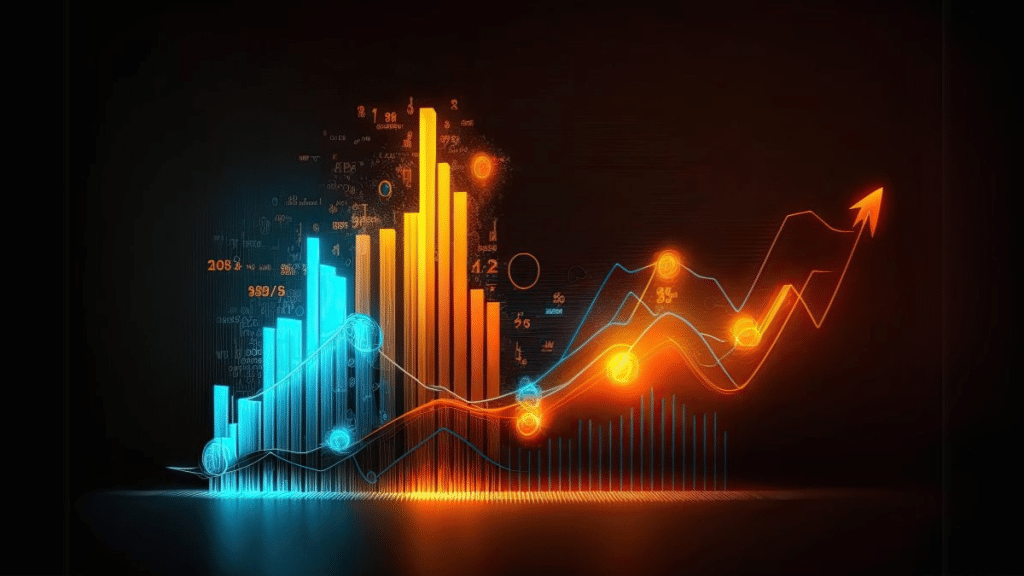Trading is as much about psychology as it is about strategy. While charts, indicators, and market analysis are essential, understanding the psychological factors that influence decision-making can be the difference between success and failure in the financial markets. In fact, studies show that emotional discipline accounts for a significant portion of a trader’s long-term success.
The Role of Emotions in Trading
Emotions like fear, greed, and overconfidence often drive trading decisions, sometimes leading to costly mistakes. Here’s how these emotions play out in real-world trading scenarios:
- Fear: Fear of financial loss often drives traders to close their positions too early, causing them to miss out on potential profits. For instance, a trader might sell as soon as they see a small gain, only to watch the market continue to move in their favor.
- Greed: On the flip side, greed can lead to overtrading or holding onto positions for too long, risking significant losses. A trader might ignore warning signs and hold onto a losing trade, hoping for a turnaround that never comes.
- Overconfidence: After a few successful trades, overconfidence can set in, leading traders to take excessive risks without proper analysis. This often results in unexpected losses that wipe out previous gains.
Recognizing these emotional triggers is the first step toward developing a disciplined trading mindset.
Cognitive Biases in Trading
Traders are also influenced by cognitive biases—mental shortcuts that can distort decision-making. Some of the most common biases include:
- Confirmation Bias: Traders tend to seek information that supports their existing beliefs while ignoring contradictory evidence. For instance, a trader might focus only on positive news about a stock they’ve invested in, disregarding negative indicators.
- Anchoring Bias: This occurs when traders rely too heavily on the first piece of information they encounter, such as an initial price point. For example, a trader might fixate on the price at which they entered a trade, refusing to sell even when the market conditions have changed.
- Loss Aversion: The tendency to prefer avoiding losses over acquiring equivalent gains. Traders might hold onto losing positions in the hope of breaking even, even when cutting losses would be the smarter move.
Understanding these biases can help traders make more rational and objective decisions.
Strategies to Overcome Emotional Trading
1. Develop a Trading Plan:
A well-defined trading plan acts as a roadmap, helping traders stick to their strategy even during volatile market conditions. This plan should include entry and exit points, risk management rules, and clear goals.
2. Use Risk Management Tools:
Setting stop-loss orders and position sizing can limit potential losses. For example, a trader might decide never to risk more than 2% of their capital on a single trade. This ensures that no single loss can significantly impact their overall portfolio.
3. Practice Mindfulness:
Techniques like meditation, journaling, or even taking regular breaks can help traders stay focused and reduce emotional reactivity. Mindfulness practices can also improve self-awareness, making it easier to recognize and manage emotional triggers.
4. Leverage Technology:
Automated trading tools, such as algorithmic trading systems, can remove emotional decision-making from the equation. These tools execute trades based on predefined criteria, ensuring consistency and discipline.
For traders looking to implement these strategies, platforms that offer advanced risk management features and educational resources can be invaluable. The Importance of Education
For traders looking to improve their psychological resilience, education is key. Understanding market psychology, risk management, and the tools available can empower traders to make better decisions. Here are some ways to continue learning:
- Read Books on Trading Psychology: Titles like “Trading in the Zone” by Mark Douglas or “The Disciplined Trader” offer valuable insights into mastering the mental side of trading.
- Join Trading Communities: Engaging with other traders can provide support, accountability, and new perspectives.
- Take Courses: Many platforms offer courses on trading psychology, risk management, and technical analysis.
As one expert put it, “The most successful traders are those who master their emotions as much as their strategies.”
Real-Life Examples of Emotional Trading
- The Bitcoin Boom and Bust: During the 2017 Bitcoin rally, many traders were driven by greed, investing heavily without proper research. When the market crashed in 2018, those who failed to manage their emotions suffered significant losses.
- The GameStop Short Squeeze: In early 2021, retail traders driven by both fear of missing out (FOMO) and a desire to “stick it to the big players” pushed GameStop stock to unprecedented highs. Many who entered trades based on emotion rather than strategy lost money when the bubble burst.
These examples highlight the importance of emotional discipline and a well-thought-out trading plan.
Conclusion
Mastering the psychology of trading is just as important as mastering technical analysis or market fundamentals. By understanding emotional triggers, recognizing cognitive biases, and implementing strategies to stay disciplined, traders can significantly improve their chances of success.
